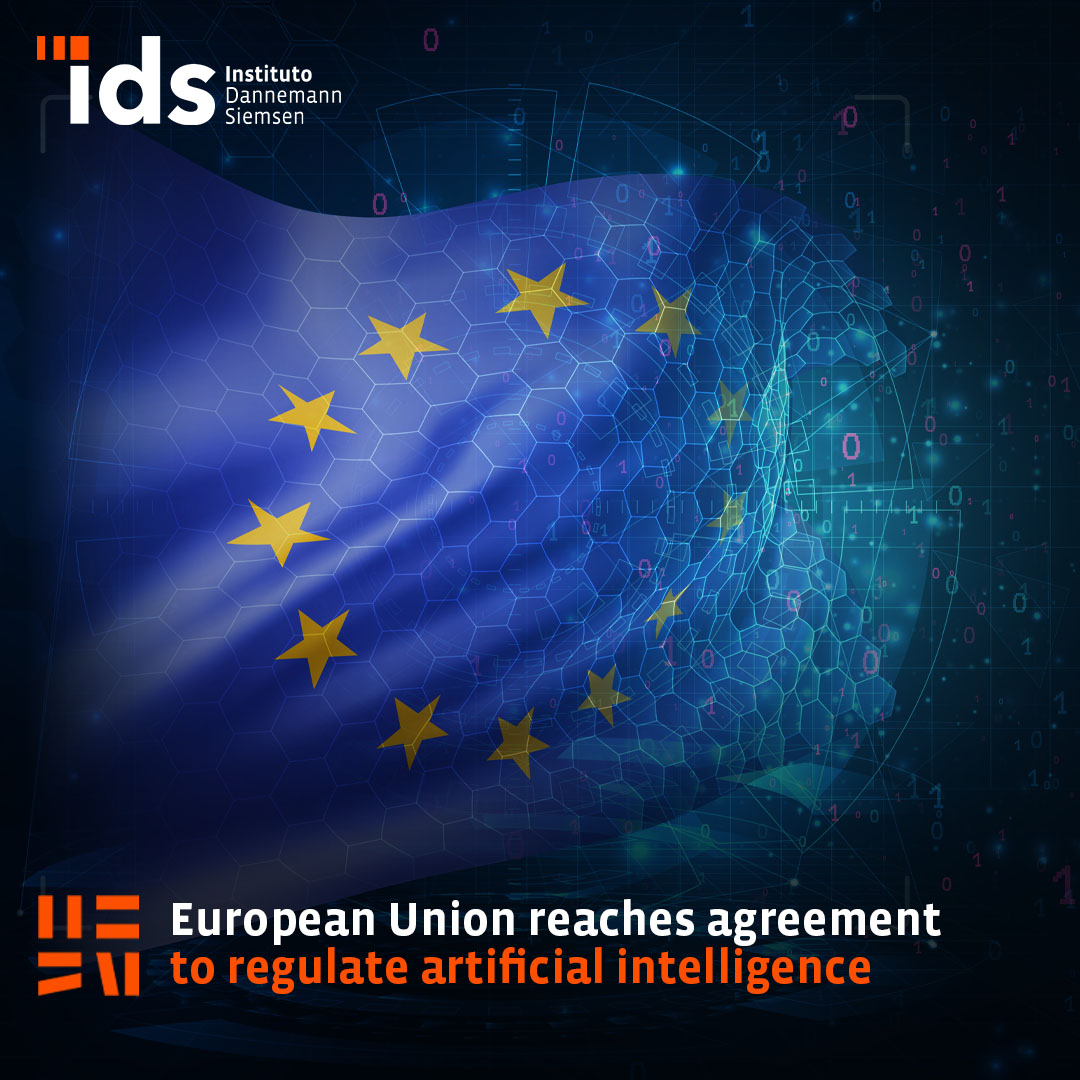14 de dezembro de 2023
Share
European Union reaches agreement to regulate artificial intelligence
Last Friday (8), the member states of the European Union (EU) and their legislators reached an agreement on the general rules for drafting a regulation for artificial intelligence (AI) models. Although the final text of the law is still being discussed, the so-called “AI Act”, when approved, should be the most comprehensive AI regulatory framework to date.
The innovative technology, which is gaining more and more ground, has been the focus of several discussions over the last year. Last month, the Biden administration issued an executive order containing global actions to ensure the safety of AI systems, as did Chinese regulators, who in early 2023 issued rules to deal with generative AI, imposing restrictions on the use of data and recommendation algorithms.
Thus, the text of the EU’s Artificial Intelligence Law first establishes definitions for AI, which it sees as indispensable for allocating responsibilities under the new legislative framework. It then classifies AI systems into risk levels (unacceptable risk, high risk, limited risk and low risk) in order to delimit which measures should or should not be applied on a case-by-case basis. For example, as agreed, certain practices such as the indiscriminate collection of images from the internet to create a facial recognition database, among other uses that violate the fundamental rights of European citizens, will be completely prohibited.
Also according to the law, chatbots and deepfakes (software that manipulates image, audio or video content) will be obliged to make it clear that the content is generated by AI. In addition, other requirements include compliance with EU copyright law and the creation of detailed summaries of the content used to train the AI models. Violations of the provisions could lead to sanctions of up to 6% of a company’s global sales. According to the EU, the aim is to ensure that AI is safe, transparent, traceable, non-discriminatory and environmentally friendly.
In Brazil, Bill No. 2338/2023, currently under analysis in the Senate, also seeks to regulate AI systems and follows the risk categorization model proposed in the European “AI Act”.
The European Union’s Artificial Intelligence Act can be accessed via the link: Artificial Intelligence Act
Bill 2338/23 can be accessed via the following link: PL 2338/23
